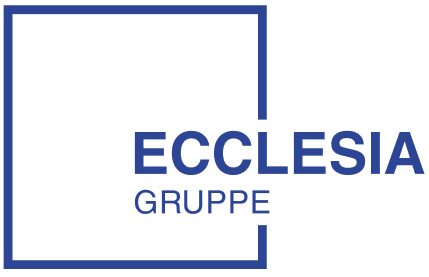
16th Hospital Personnel Congress looks into the future of personnel management
After the official opening, the congress began with a presentation by Prof. Dr. Michael Forsting. The Medical Director of IT at Essen University Hospital explained the possibilities of AI as an aid to diagnostics. Although reservations are particularly high in medicine, AI-supported algorithms could relieve specialists of routine tasks in a wide variety of areas in the future and thus counteract the shortage of specialists.
Current developments in hospitals
Prof. Dr. Henriette Neumeyer, Deputy Chairwoman of the Board of the German Hospital Federation (DKG), spoke about the current challenges facing hospitals, including against the backdrop of the planned Hospital Care Improvement Act and the DKG's activities to counteract the shortage of specialists. In order to ensure nationwide, high-quality medical care in the future, it is important to increase efficiency and flexibility in staff deployment and thus also in the provision of services. She presented what this could look like in concrete terms in the new position paper “Shaping healthcare together: Focus on specialists”.
Whether nursing staff in general wards and intensive care units or IT staff - almost every German hospital has massive problems filling vacancies due to a lack of specialist staff. As an expert in the healthcare industry, Prof. Volker Penter highlighted the urgency of solutions and sustainable strategies for securing skilled staff in his presentation on “Staff shortages in hospitals”. HR work in hospitals is becoming more and more strategically important. While it used to be mainly about administration, the topic of “personnel” is increasingly playing a central role in planning and organization. In his presentation, Detlef Odendahl, authorized signatory at Klinikum Leverkusen, explained how the new hospital planning in North Rhine-Westphalia influences personnel management. Odendahl explained how hospitals can optimize their personnel strategy in the areas of medicine, nursing and functional services and what challenges the administration must overcome. He emphasized that the decisions on which treatments a hospital is allowed to carry out and to what extent will also change the requirements for staff qualifications.
Collective bargaining policy challenges and labor law innovations
The collective bargaining policy framework and upcoming collective bargaining negotiations are also of great importance. Niklas Benrath, Managing Director of the Federation of Municipal Employers' Associations (VKA), explained the current developments and outlined the collective bargaining policy framework for municipal hospitals bound by collective agreements. He then gave an outlook on the future of the TVöD-K and the TV-Ärzte/VKA from the perspective of the employer side.
Case law and collective bargaining parties are constantly bringing innovations for HR departments. The framework conditions for nursing care, working hours, fixed-term contracts, minimum staffing levels and emergency services during strikes are just some of the practical challenges in the healthcare sector. Prof. Dr. Gregor Thüsing, Director of the Institute for Labour Law and Social Security Law at the University of Bonn, provided insights into current developments and decisions for day-to-day HR work based on numerous labour court rulings.
Company pension scheme
In times of an increasing shortage of skilled workers, additional benefits in addition to salary are becoming increasingly important. One way of doing this is through company pension schemes, which today include retirement benefits, income protection and, increasingly, company health insurance. In this context, Hubertus Mund, Managing Director of KlinikRente, provided information on the latest developments in the legal framework. He showed how the Company Pension Strengthening Act opens up new opportunities to use company pension schemes as an “attractive benefit” in order to better position oneself in the competition for skilled workers. It has the following advantages over private pension provision: security through the pension fund, lower administrative costs and simple digital processes. It became clear that occupational pension provision is also a decisive success factor in the battle for qualified specialists in the healthcare sector.
In addition to other exciting presentations on practical HR topics, there was plenty of time for networking at the evening get-together in the Chocolate Museum. Participants took the opportunity to exchange ideas, make contacts and find out about solutions from the sponsoring partners.
See you again in December 2025
The 16th HR Congress impressively demonstrated that innovative approaches and strategic HR planning are crucial to meeting current and future challenges in the healthcare sector. “We are already looking forward to exchanging ideas with experts from the healthcare sector on December 1 and 2, 2025 in Cologne,” said Hubertus Mund, looking ahead.
